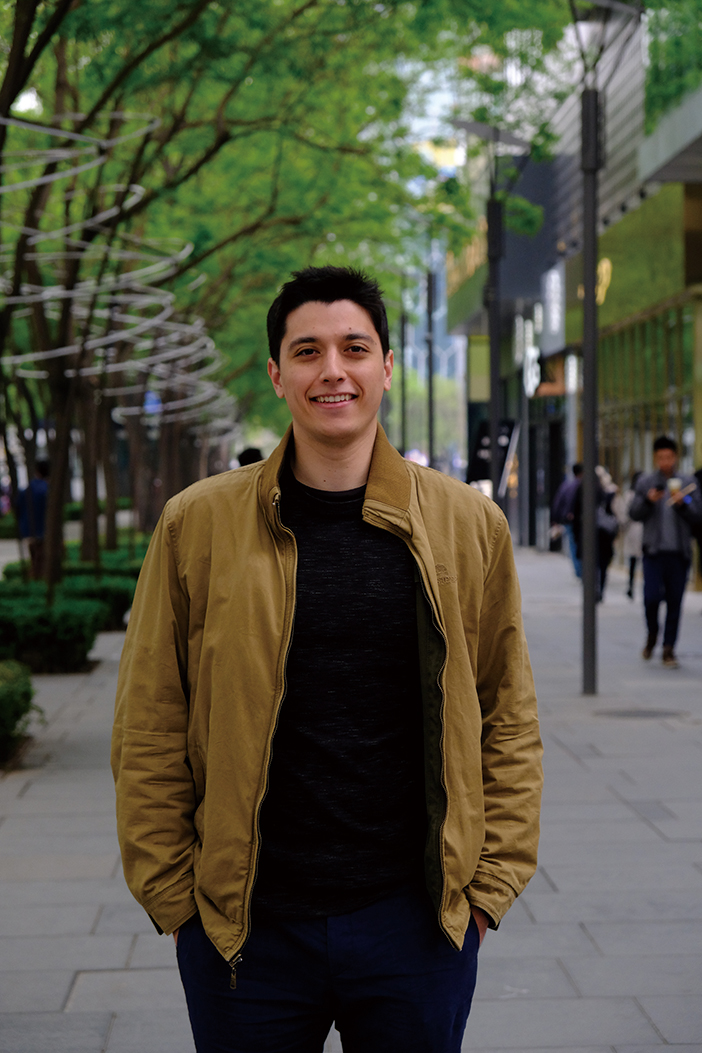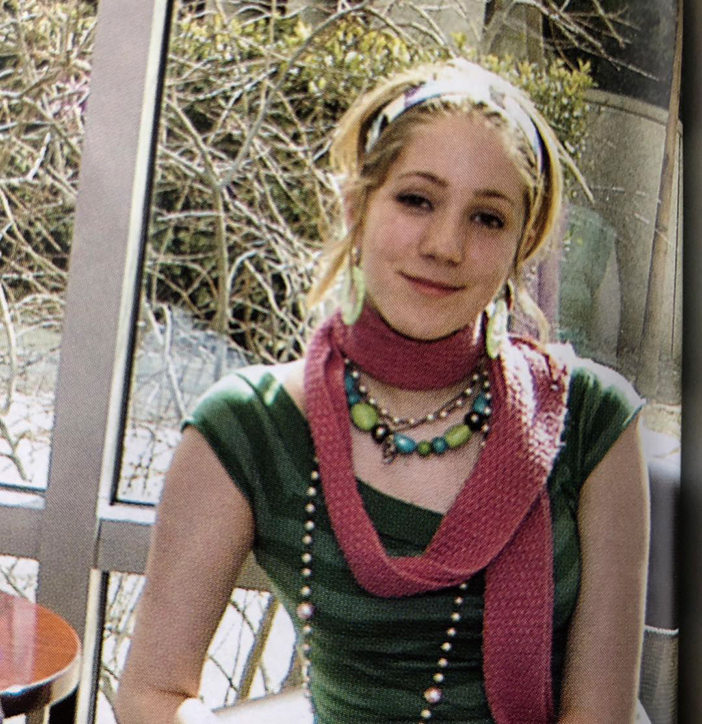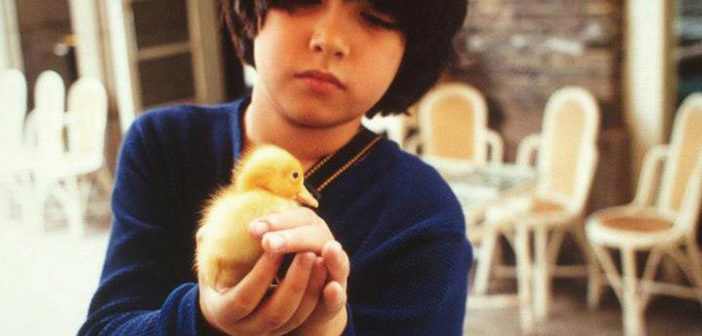As parents of children growing up in an international environment, it’s natural for us to wonder how their experiences might shape their future. Very often, our children had no part in the decision to move to Beijing, and we hope that the advantages of learning new languages and gaining a global perspective will outweigh the challenges they face.
It might be reassuring then to learn that some of those former third culture kids return to Beijing as adults. We talked to three of them, about their experiences of growing up in the city, and what brought them back here to work.
Greta Bradford was not only a Beijing kid, but actually featured in the very first issue of beijingkids! Back then she was a teen attending the International School of Beijing (ISB).
“I moved to Beijing from Portland, Oregon, when I was 16,” she told us. “I went to ISB, and met many friends on the first day! Making friends from so many countries definitely changed my worldview. The war in Iraq and Afghanistan were underway and classmates would frequently discuss or debate the US role in global politics from many perspectives. Having friends from different backgrounds has enriched my empathy and world perspective.”
Lincoln Lin was much younger (in featured photo) when he first came to Beijing. He was born in the US to a Chinese father and American mother, but as he told us, things could have been different.


Lincoln Lin
“It was always planned that I would be born in the States, but mom has harrowing tales of getting over while six months pregnant.”
He began visiting his father in China when his parents separated, and his earliest memories of Beijing are dominated by concrete.
“In the US, we lived in a regular old brick house. Then there I was at 5 or 6 in this massive concrete building, playing with Lego on a mat… the walls, the ceiling, everything was concrete.”
For Christian Shepherd, originally from Milton Keynes in the UK, it’s the memories of England which stand out as exceptional.
“We came to Beijing to live when I was 4,” he said. “We stayed for two years and then returned to a village in south England for a year, when my sister was born, before returning in 1998 and staying until 2005. My only clear memories of early childhood living outside Beijing are from that year. They are mostly straightforward scenes of country living: football on the village green, Sunday lunches at the local pub, building a treehouse with my stepfather and brothers, that kind of thing.”
Shepherd studied at the Western Academy of Beijing, and like Bradford, found international school an enriching experience.
“My friends came from all over. Aside from fellow Brits, my closest mates over the years included Russians, Finns, Australians, Germans, South Africans, Japanese, Canadians, and Americans, among many others. This meant that I had unusual exposure to different cultures. In my experience, multiculturalism is baked into the system for international schools. I attended Bar-mitzvahs and celebrated Eid. On UN Day, one of the biggest events of the year, everyone would bring in home-made dishes that showed off their country’s cuisine. (I tended to settle for the trifle.)”
In another way though, he says that his worldview was “oddly narrow.”
“Very few, if any, of my friends, were actually from China – at the time, it was almost impossible for Chinese parents to send their children to Beijing’s international schools – and they were also almost exclusively from a similar socioeconomic background to my family. We all went on beach holidays to Southeast Asia and skiing holidays in Europe. Everyone had ayis and drivers. It wasn’t until I went back to the UK and attended a local state school that I made friends who lived outside that bubble.”
Living with his artist father in Beijing and Yunnan, Lin had a very different style of education.
“Most of my formal schooling was at Bethesda, Maryland, but I did a lot of time in China, over a summer or half a year. I was in China for all of 7th grade and part of 8th, but I was either at a Waldorf school, being homeschooled, or learning from martial artists. I wasn’t enrolled in public school.”
Being divided between two worlds caused him some problems, but not as many as you might expect.
“I went from Kindergarten to 12th grade in the same Waldorf school,” he said, “so my US friends were largely the same all the way through. Because I wasn’t always there, I spent a big chunk of time off the grid. I always had a few good friends that I could just pick back up with, but there were times I would come back and feel totally isolated, especially if I spent a year or longer away. But I never felt discriminated against because of race. Because I look more western-looking, race was never an issue. It’s always an issue in China though.”
For Shepherd, on the other hand, returning home in his teens was a shock, at least at first.
“We moved to a small rural town [Richmond in Yorkshire] and many of my peers had seen little of the world outside. A number of my friends had not been abroad before. Fortunately, I made some very good mates in high school and got over my reverse culture shock quite quickly, so by the time I went to university, I felt more like a Richmonder than I did a Beijinger.


Christian Shepherd
“At university, the environment was already more mixed. There were a few things that created a sense of difference. I lacked some of the shared understanding, like TV shows or common early childhood experiences, that drew people together. But then I suspect everyone tends to feel like that to a degree when they enter a new environment. I remember hearing similar complaints from my high school mates about university friends from southern England, who seemed to them to have totally alien cultural touchstones.”
Shepherd graduated from Oxford University, then returned to China to study for an MA at Nottingham University’s Ningbo campus.
“My choice to go to Nottingham was partly an attempt to put off not knowing what I wanted to do, and also a bridge back to China. I hadn’t used Mandarin for almost seven years and I was annoyed – and mildly shocked – to find how far I had regressed. After my MA, I attended the Inter-University Language Program (IUP) at Tsinghua for a year, which got me to a level where I felt mostly comfortable getting around in Mandarin at work and in daily life.”
It was his language skills which led to Shepherd’s current career.
“I decided that I wanted to try journalism,” he said. “It proved a bit harder than I had imagined – my Mandarin was not nearly as good as I thought and my understanding of China was superficial and often just plain wrong – but I eventually managed, after two years studying and multiple internships, to find a job as a journalist. I have covered China now for nearly four years, at Reuters and the Financial Times.”
For Bradford too the IUP proved to be a route to working in Beijing.
“I went to Oberlin College and studied Chinese and environmental studies. I never would have studied Chinese if I hadn’t been living in Beijing! After I graduated I moved back to Beijing to study advanced Chinese at IUP. Then in 2015, a few friends and I got the crazy idea to start our own video agency. Relay Video has now been around for three years, and has offices in Beijing, Shanghai, and Shenzhen.”


Greta Bradford (left)
When we asked Lin why he returned to Beijing, he laughed.
“I never really left!” he said. “I come back every year. My plans are to continue doing what I’ve been doing, bouncing back and forth between China and the US. I’ve worked for big companies, small companies… I’ve worked in policy and economic analysis, translating political analysis, then I got a great opportunity to work for a Chinese startup tech company. I’d like to become a credible, interesting voice talking about Chinese-American issues.”
We asked him where he considers “home”.
“It depends who’s asking, where, and why. I have a racial ambiguity card in my pocket which makes it easy to walk away from difficult situations! I identify as someone from Kunming and Beijing. But I usually say Virginia.”
Bradford describes both Beijing and Oregon as home.
“With a business in Beijing I plan to stay here for a while,” she said. “Beijing is a city that continues to inspire me.”
For Shepherd, the answer is simpler.
“Unlike other people who have grown up abroad, I’m lucky in feeling quite comfortable simply identifying as British, which I think came from spending my high school years in Richmond. My parents are British and it would frankly be a tad ridiculous if I started claiming to be Chinese. So I’ve always just said I’m from the UK, and from Richmond specifically, given that’s where I have the most memories. So far the only people that tend to quibble are real Yorkshire folk, who point out that I was born in the south. Turns out that some in Yorkshire are about as prescriptive over identity as China is…”

This article appeared in the beijingkids May 2019 Identity issue.
Photos: Courtesy of Greta Bradford, Lincoln Lin, and Christian Shepherd




